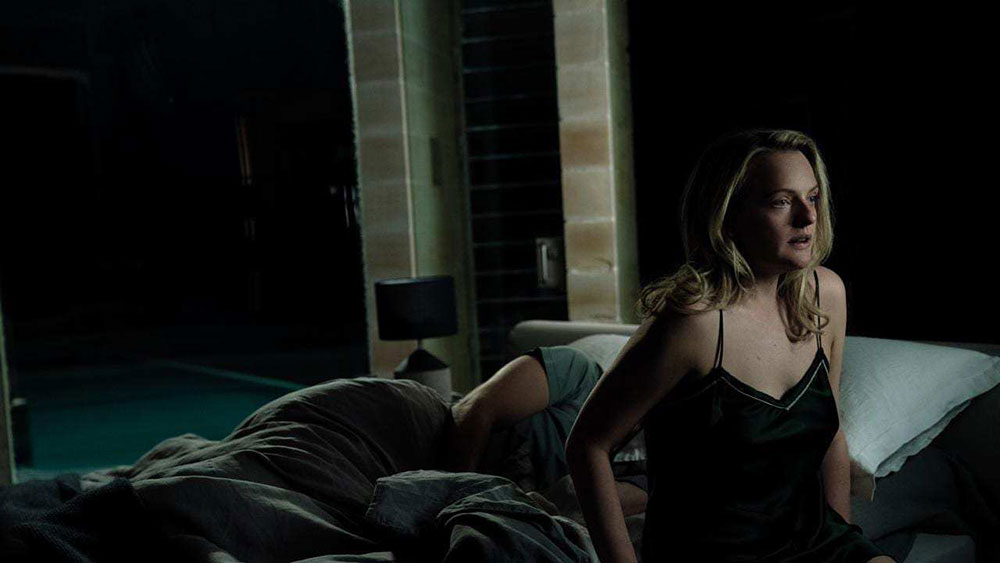Written and directed by Saw and Insidious veteran Leigh Whannell, The Invisible Man is a thoroughly modern adaptation of the H. G. Wells novel of the same name – and is the survivor of the doomed-before-it-began Universal Dark Universe that kicked off with the travesty that was 2017’s The Mummy.
Originally supposed to be part of a wider universe starring Johnny Depp, The Invisible Man was picked up by horror mogul Jason Blum, of Blumhouse Productions. Depp was dropped, Whannell was in, and a whole new film was prepared. Thank. Christ.

The Invisible Man introduces us to Cecilia Kass, a woman trapped in a violent, abusive relationship with Adrian Griffin, a tech superstar who made his name and his millions in advanced optics. After managing to escape the fortress that is their swanky South Californian residence, Cecila goes on the run – staying with her friend James, a police detective, and his daughter Sydney. Terrified that Adrian will find her, Cecilia quickly becomes a recluse, unable to step beyond the front door of James’ home without breaking into cold sweats.
This cycle ends, however, when Cecilia’s sister Emily arrives with the news that Adrian has died, having killed himself after Cecilia left. Awarded a five million dollar trustfund, left to her in Adrian’s will, Cecilia is unable to distance herself from the shadow of her late boyfriend. It starts small, at first. A frying pan left over a flame mysteriously catches fire. Items go missing from Cecilia’s portfolio, and, most worrying of all, Cecilia is drugged with Diazepam – from the exact same bottle of pills she used to knock Adrian out the night she escaped.
Fitful, and terrified, Cecilia comes to the conclusion that Adrian is not dead at all, but is somehow able to torture her without him being seen. Her protestations go unheard, however, despite the fact that Adrian is a well acknowledged genius in the field of optics and light. In no time at all, she is left isolated with her friends and family abandoning her amidst her increasingly erratic behaviour and terror.

With no one left to turn to, Cecilia must depend on her own wit, guile and strength to lure Adrian out into the open and stop him, before it is too late. What starts as a horror ends in a form of sci-fi action, and, honestly, it is absolutely incredible.
It is easy to tell that the filmmakers behind The Invisible Man have their roots in horror. From the opening scene there is a sense of unease, and indeed of the sort of gothic dread present in the original novel and later film adaptations. By the end of the first act, the film is pumped so full of suspense and dread that it’s easy to forget this is supposed to be science fiction – not supernatural horror. In both respects, this film excels. Whannell’s direction has to be credited for much of this, with long sequences of suspense, matched with an insistence to shoot characters with just a little too much space in the frame. This gives the audience the unnerving feeling that someone is there, that something is going to happen, drawing the eye and making even the most mundane scenes an edge-of-the-seat experience. Elisabeth Moss’ performance absolutely nails the unhinged nature of the story, her every moment on screen informing us of the terror and turmoil that Cecilia is going through.
This is seriously good. Beyond just a monster flick, The Invisible Man presents us with the sad fact that no matter how far away an abuser is, a survivor must still live in the shadow of terror – that they, at any moment, might fall victim to the unseen figure from their past.
Make this your next trip to the cinema, folks. You won’t be disappointed.

Comments are closed, but trackbacks and pingbacks are open.